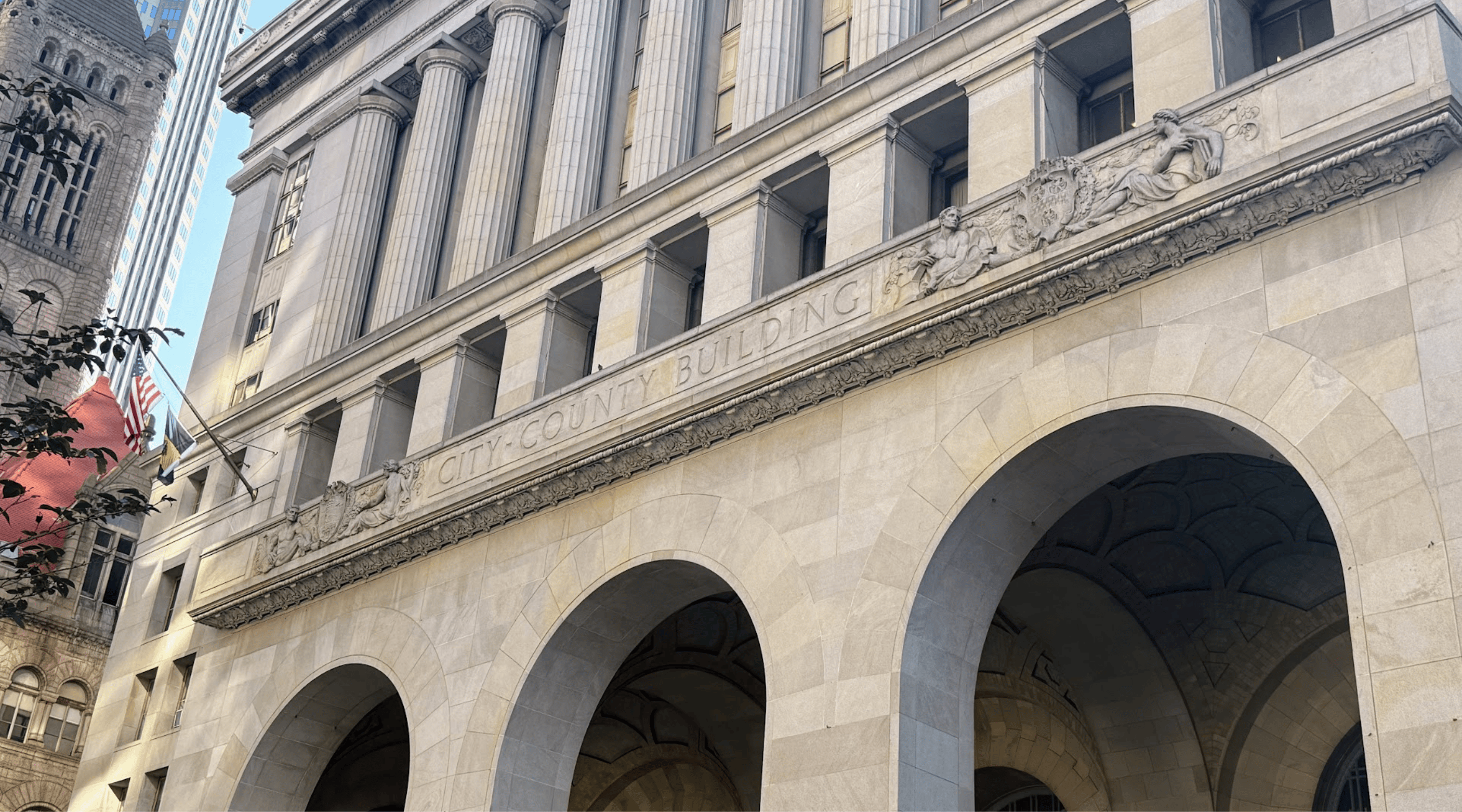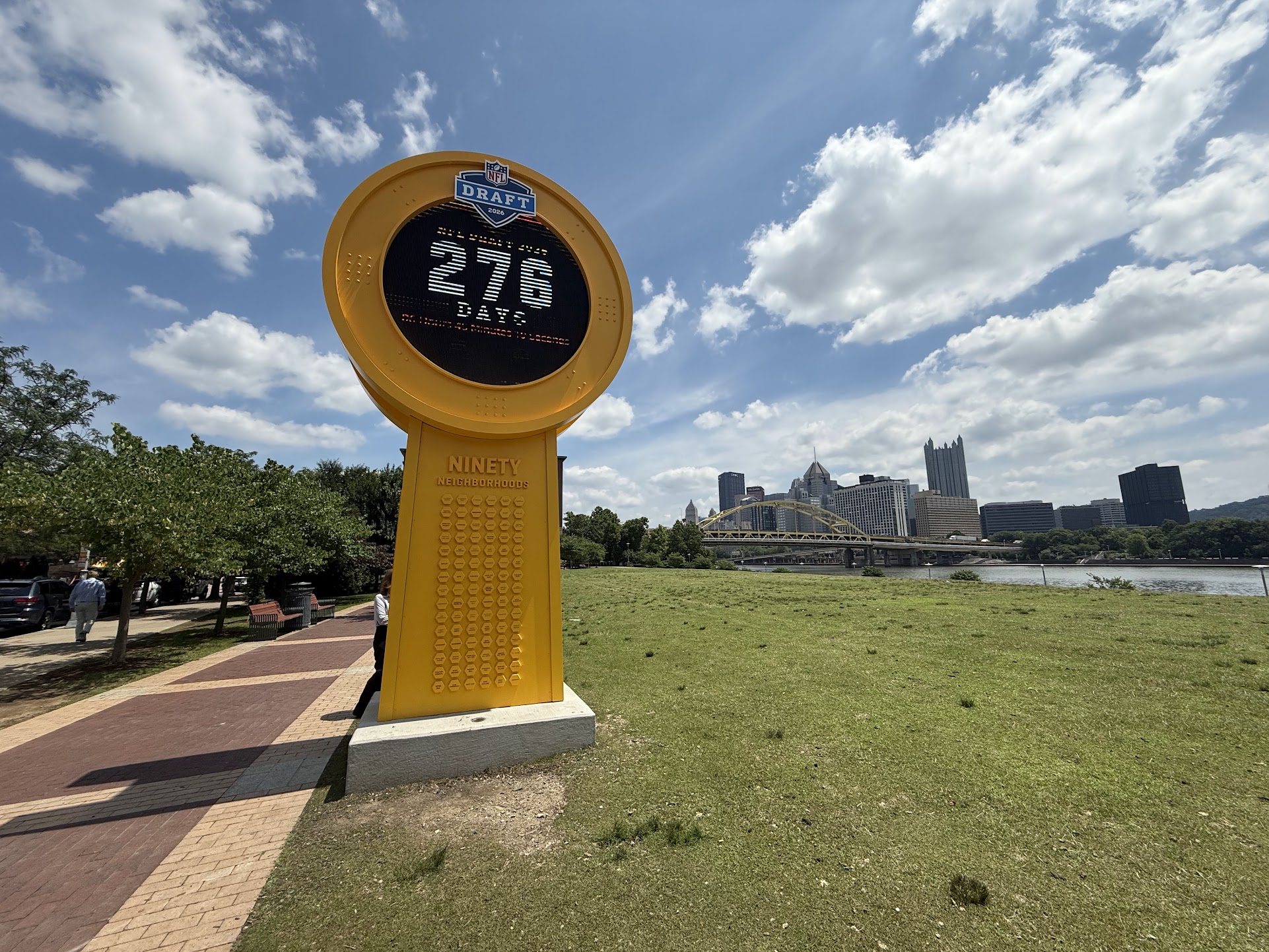
A Pittsburgh group that helps victims of sexual violence wants to work with the NFL ahead of the draft next year to reduce any possible risks that come with larger crowds.
Pittsburgh Action Against Rape leaders have recently discussed reaching out to the NFL about the 2026 draft, said Kelsey Leigh, PAAR’s director of strategic affairs and external initiatives. The event is set for April 23-25.
“How can folks be good bystanders? What are some systemic ways we can help set up this really large-scale event? What have we learned from the past?” Leigh said.
While it is not clear that sexual violence and sex trafficking goes up during the draft, organizations and local leaders in other NFL Draft host cities have taken steps to raise awareness about the issues.
PAAR leaders say they too want to be proactive.
The group was founded in 1971 out of a task force “in response to the rapes which occurred during the celebration of the Pittsburgh Pirates win over the Baltimore Orioles in the 1971 World Series,” according to the group’s website. The National Organization for Women laid the groundwork for what would become PAAR – one of the first rape crisis centers in the country.
VisitPittsburgh, the local host committee, said through a spokesperson that it is involved in “all aspects of planning, including the safety of our community, which will be addressed as we move through all stages of planning for the event.”
Since 2014, the NFL has provided social responsibility education and partners with local domestic violence shelters and sexual assault prevention organizations in communities where the Super Bowl is held. The league’s website does not state if these partnerships apply to draft communities. The NFL did not respond to requests for comment.
Leigh says another concern with large events like the draft is not just a rise in sexual abuse but sex trafficking as well. A recent ordinance change reducing penalties for prostitution in Pittsburgh does not affect the penalties for sex trafficking, which involves exploiting an individual through coercion.
“[Sex trafficking] is not something like you see in the movies...it can be discreet,” Leigh said. “The draft is a big deal economically for the region, and we want to see the positives highlighted while doing everything we can to mitigate potential negatives like sex trafficking.”
For this year’s draft in Green Bay, Brown County Commissioners awarded an anti-trafficking awareness group $20,000 to educate the public on signs and dangers of trafficking. And in Detroit, a Wisconsin-based travel agency provided a similar toolkit ahead of the draft to area businesses and organizations.
Detroit drew a record crowd of nearly 800,000 for the draft in 2023, and according to reporting by The Associated Press, attendance reached over 600,000 in Green Bay this year.
PAAR served an average of 25 clients per month related to sex trafficking, according to data from July 2022 to June of this year. This includes clients with a history of being trafficked or those who are currently being trafficked.

The group’s efforts also come at a time when Pittsburgh City Council adopted an ordinance allowing police to charge prostitution as a summary offense, from a misdemeanor.
“I think [the ordinance is] really well timed coming up before the draft, to be able to just have a really open conversation about that as a community,” Leigh said.
Another organization, the Pittsburgh Coalition for Safer Sex Work, also advocated for legislation that lowers penalties for sex work in Pittsburgh.
Organizer Theresa Nightingale said adopting the ordinance ahead of next year’s NFL Draft is “crucial.”
“You naturally go where the work is, and with the draft, it's going to bring a lot of people to dance and do other sex work,” said Nightingale, who has been working on the legislation for about three years. “This [ordinance] helps their lives from being ruined...and hopefully will give workers more confidence to speak up if something dangerous happens to them.”
The legislation, introduced by Council member Barb Warwick, states penalties should not exceed $100, and community service can be issued instead of a fine.
The ordinance was passed with two other bills: one to deprioritize enforcement of any state or federal measure that could make it illegal to express sexual orientation or gender identity, and another to bar health care providers from denying people medical care because of their gender identity or gender expression.
In research cited in the legislation, between 2016 and 2022, 3% of the city’s arrests for prostitution concerned incidents of violence, sex trafficking, or the victimization of minors. A Pittsburgh Bureau of Police 2023 annual report says there were eight prostitution offenses that year.
When patrons are arrested, they often have legal representation that sex workers don’t, Warwick said.
And patrons may “find their cases resolved with a summary offense at the preliminary hearing level, while providers routinely face penalties that include criminal conviction, incarceration, fines, parole, and probation,” the legislation notes.
“This bill has zero impact on the vast majority of Pittsburghers, but the few that it does impact. It is going to make it easier to get them the help that they need,” Warwick said.
For example, police could direct sex workers to PAAR, which provides services such as free rapid testing for sexually transmitted diseases, supportive counseling, and legal assistance.
The ordinance will allow Pittsburgh police to focus their resources on violent crimes, Warwick said.
Prostitution remains illegal in Pennsylvania, and while treated as a misdemeanor in most cases, safe sex work advocates say the impact of these charges are still harmful. Under state law, the penalty for a first or second offense for prostitution is up to one year in jail and a fine up to $2,500.
“These charges also don’t stop the work,” Nightingale said. “It just makes [workers] less likely to go to the police when abuse or stalking or other dangerous situations happen.”
Nightingale said the next step is further educating the Allegheny County public defender’s office and police on the new ordinance.
“I think like what we saw with the cannabis ordinance is that it takes a little bit of time to get educated and understand that this is now a tool they can use and remind them of resources they can direct people to,” Nightingale said.
City Council passed a similar ordinance in 2016, reducing the penalty for smoking marijuana in public to a summary offense.